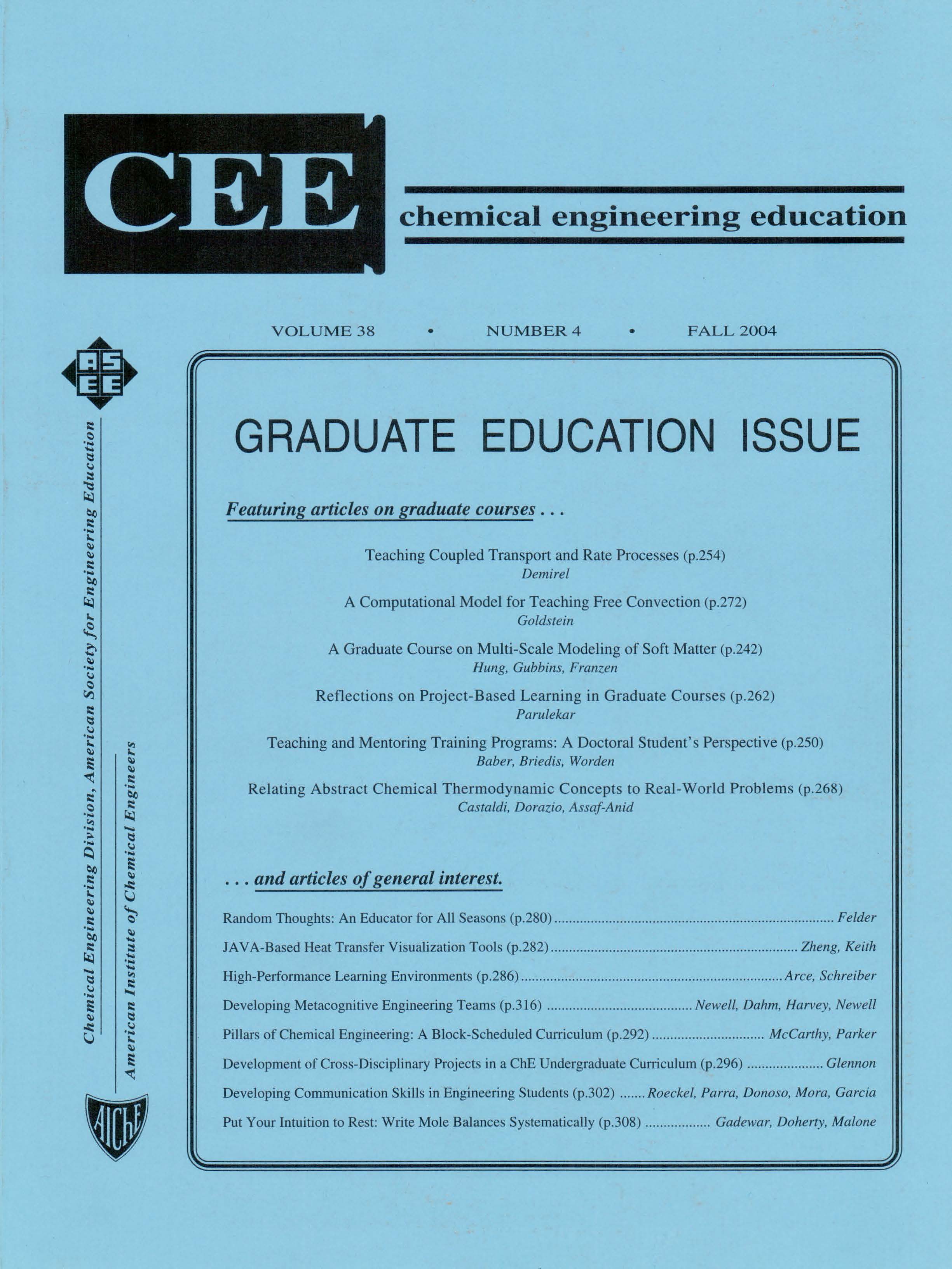Relating Abstract Concepts of Chemical Engineering Thermodynamics to Current, Real-World Problems
Abstract
In this paper we present the current, highly visible environmental problem of Methyl tert-butyl Ether (MTBE) contamination in groundwater that was given to students taking process thermodynamics. They were asked to propose solutions using the principles learned in class. The purpose was to give chemical engineering students a better understanding of the subject of thermodynamics. The problem incorporated abstract thermodynamic concepts, such as fugacity, solubility, and multiphase equilibrium, and attempted to apply these concepts to a relevant and practical situation that students can relate to. More specifically, it required the students to derive the proper thermodynamic relationships for the separation of 1-2% MTBE from an aqueous solution containing 5-10% n-heptane, used as a surrogate for gasoline.


